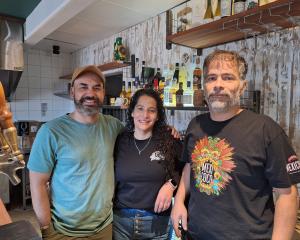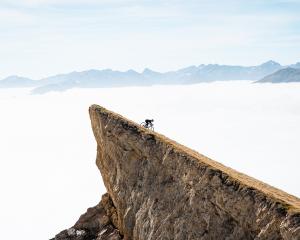The Hawea Community Association will clean up three scenic lakeside reserves before any decision is made about removing vehicle blockades designed to stop freedom campers at the sites.
The association paid for the installation of rows of massive boulders at reserve sites at Craig Burn, Deep Bay, and north of the Lake Hawea lookout, last month.
Association president Rachel Brown said the blockades were there to stop the occupants of rental tourist vans depositing an unacceptable amount of litter and human waste at the sites.
The association had always acknowledged that blocking vehicles from the lakeside sites would have an effect on those who wanted to retain public access, she said.
However, the move had drawn considerable support from local people, although there were a few detractors.
Ms Brown rejected reports claiming an angry backlash was building against the association's moves to block access.
"We've had three letters sent to us protesting the move and these have been hugely outweighed by the positive messages we have received."
Any suggestion public opinion had swung against the blockades was a "twisted take" on what the association was trying to achieve, she said.
"We appreciate people's concerns and understand they are protective of their public access rights, but we felt we had to take action to address the issue at hand," she said.
The association is waiting to see what effect a list of initiatives from the New Zealand Freedom Camping Forum - a meeting held in Auckland last month which brought together industry players from local authorities, and the tourism, conservation, and environmental sectors - would have.
The association had achieved one of its goals by blocking the sites, as the messy issue of freedom-camper vehicles was now at the forefront of thinking "around New Zealand", Ms Brown said.
Association members intended to clean up the three blocked areas and would take an idea to the Queenstown Lakes District Council to help beautify the lakeside sites, she said.
"People will have more respect for those areas when they are more clearly marked as a reserve or rest area," Ms Brown said.
Once the initial cleanup working bees were carried out during winter and early spring, the association would remove some of the boulders to give access to vehicles, Ms Brown said.
The sites would be monitored to determine whether the reserves were being used by rental campervans, and if they were abused with a proliferation of human waste and litter, the association would reconsider its blockades, she said.
Advertisement













